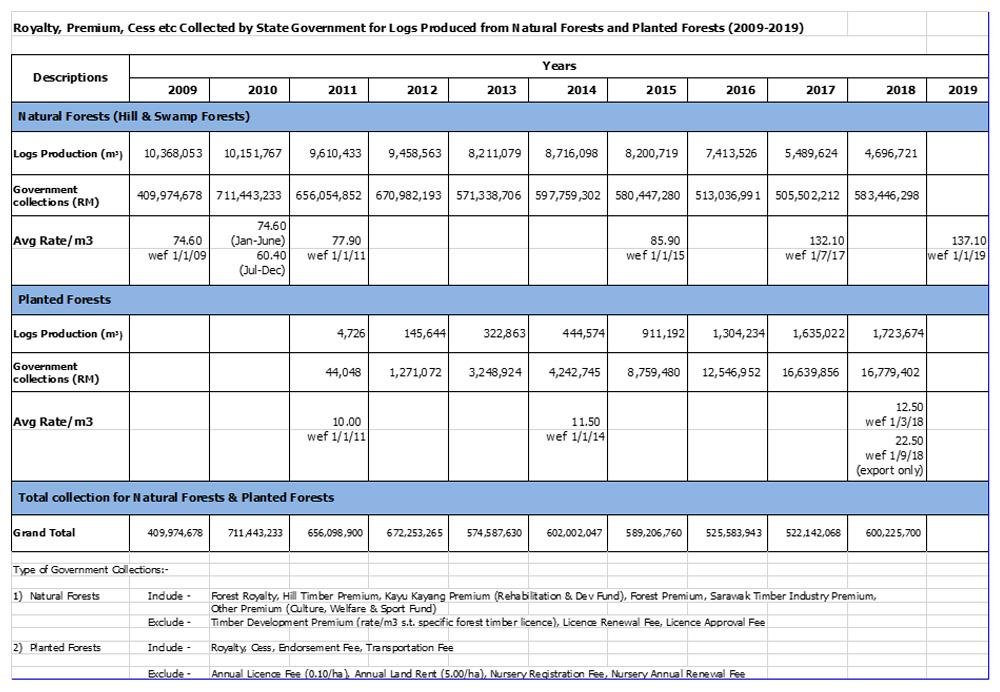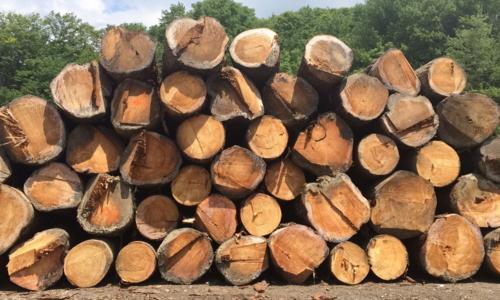The continuing saga of the country's timber industry
LETTER | On April 11, a Borneo Post article quoted Sarawak Forest Department director Hamden Mohammad responding to the Sarawak Timber Association. He said:
"The industry players must align themselves to the external changes and must be ready to adopt new ways of doing things and the usage of the latest technology.
"They must use the right technology to produce suitable and new products with quality acceptable in the global market place. Technology can also shift the industry from labour-intensive sector to automated manufacturing."
The Sarawak Forest Department seems to be inferring that industry players can make use of the latest technologies to produce suitable, new and high-quality timber products to adapt to changing global demand.
The title of the article, "Surrender licensed areas if you can’t adapt," further suggests that if any timber industry player were to not make use of these new technologies, then they should surrender their licensed areas.
It is indeed disappointing that the common sense propagated by the department was not more revelatory. It is like seeing a magician change plain paper into real money without revealing the trick.
The timber industry has evolved and grown to present stage and structure over a period of nearly 70 years.
It has grown through market needs and local adaptation in human resources, financial capability, infrastructure to access to remote resources, community participation, and it has even adapted to changing government policies.
It did not and could not happen overnight. The very idea that someone could comment on a ‘brilliant’ idea that the industry both in Sarawak and around the world could be transformed explicitly through the application of new technologies in such a short span of time is superficial and unrealistic.
Lack of government support
If the department disagrees, then let’s look at the circumstances of transforming timber resources from natural to planted forests.
In the 1990s, the Sarawak government wisely embarked on the decision to plant at least one million hectares of industrial trees, by granting over two million hectares of land area to LPF (licence for planted forest) licensees.
At today’s costs, about RM10 billion would have to be invested with a gestation period of seven to 15 years, depending on the species planted.
In anticipation, the Sarawak government also initiated a plan by setting up a GLC to establish a Kraft Pulp Mill necessary to process the planted trees. Not only that, the government even allowed LPF holders to plant one 25-year cycle of oil palm trees to help generate funds.
Great plans, admirable intentions, and sound policies, but the proposed Kraft Pulp Mill was abandoned after large sums of money were spent. The planting performances were also unsatisfactory.
Why? After all, any well-laid out plan should garner positive results. Were the LPF holders unable to provide the financial commitment? Did they lack in terms of technological adoption?
Or is it the issue of land encroachment, continuing issuing of natural forests licenses over LPF areas, cumbersome and outdated governance, or maybe flip-flop government policies on planted forests?
Let the department stand up and be held accountable, and point the timber industry towards the real cause of the previous poor performance. Show us the way forward by removing these obstructing issues, which only the government has authority and power to exercise.
Multi-faceted partnerships required
Hamden also said that the Sarawak government has provided incentives to LPF holders by allowing some parts to be planted with one cycle of oil palm. He is right, and the LPF holders should be grateful.
However, the Sarawak Forest Department has forgotten to mention that the LPF holders need to pay hefty sums, amounting to millions of ringgit, in land rental each year to the government, even before harvesting and over the areas that are encroached by the natives and overlapped with existing timber licences.
Even if Hamden says that the timber industry should be grateful to the Sarawak government for being prudent and visionary in granting LPF licences to transform the timber industry from depending on natural forests to planted forests for greater sustainability, he is only partially correct.
The truth is, planting trees needs much more than just prudence. To be successful, it requires multi-faceted partnerships between the government, investors, financiers, researchers and communities.
To make matters worse, the federal government has disqualified investment capital claim on planted forests with a seven-year limit. This means that any losses arising from any capital investment of forest planting will be disqualified from tax allowance, as most tree plantation will need more than seven years to harvest, let alone make any money to offset cumulative losses.
Together with the fervent and vicious land encroachment and claims of land rights, coupled with the recently approved PGPM bills, would the department still be able to assert that LPF holders were given ‘incentives’?
Would the government be willing to enforce the land code and forest laws relevant to the LPF without fear or favour? Is the government willing to invest its own money in tree plantation under such circumstances?
Would the government commit itself to a workable and stable long term policy that can provide a sense of security and confidence to investors in planted forests? After all, they are already facing many variables attributed to the undertaking of planting forests.
Just to remind the Sarawak government that its own LPF areas are being seriously encroached upon, and not one issue has been resolved since its conception.
Would the Sarawak chief minister seriously consider putting some of the money from state reserves to invest in planted forests, considering its definitive role in our private and public economy, as well as the preservation of our natural forests for future generations?
Surely this is equally if not more economical, and evidently more sensible than buying electric and hydrogen-operated buses, or spending billions of ringgit on infrastructure and utilities in the middle of the jungle without much commercial justification.
Enlightenment sought on technology proposed
The timber industry has the capability and would gladly adopt the latest technologies, but it would help if the Sarawak Forest Department can shed more light on which technology and for which area of application.
Indeed, it should please the Sarawak government that the timber industry in the state is already the forefront in its capacity, and is in possession of the most sophisticated machines and equipment in comparison with the current world standard.
To emulate the importance of technology is hardly enough. Technology can excel and be of assistance only if there are suitable, relevant and available resources in terms of logistics, infrastructure, prudent governance and conducive government policies, markets, and above all, competitive pricing and costs. Quality itself is and never has been an issue.
Increase in taxes
Finally, we must call to attention to the increase in timber premium and cess. The Sarawak Forest Department mentioned that certain parts of cess and levies are long overdue for review.
However, the department did not mention the total amount the government collects from the timber industry, and how much more is being proposed to be collected.
The following tables show the recent sudden increases and the newly proposed rates. Please note the dates as indicated below.

Call for time to mitigate
Timber industry players are surely mindful of their roles in contributing to the revenue of the government, for whatever purpose.
However, for any change or transformation, one needs to appreciate that this is not child’s play and one cannot simply turn and twist at whim.
Time is needed to manage, adjust and mitigate factors ranging from production costs and market competition and other respective needs. To build up a market channel is consuming, but to destroy a market is easy.
Let us be practical as well. For all that has been said, let common sense prevail.
The views expressed here are those of the author/contributor and do not necessarily represent the views of Malaysiakini.
RM12.50 / month
- Unlimited access to award-winning journalism
- Comment and share your opinions on all our articles
- Gift interesting stories to your friends
- Tax deductable
